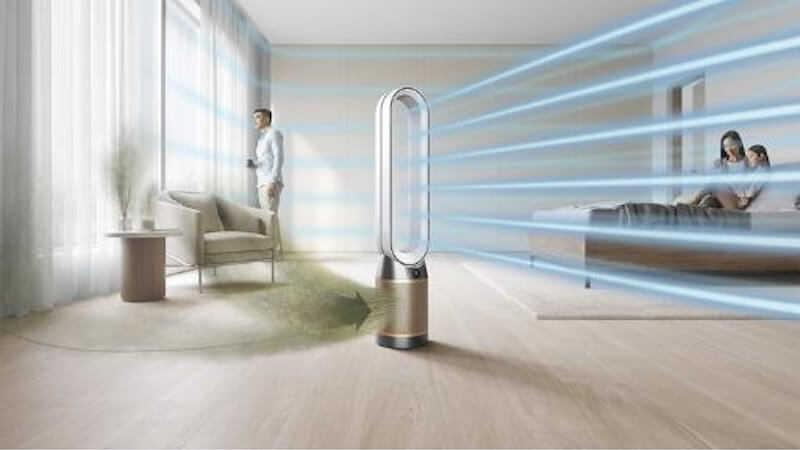
Researchers at the University of East Anglia in Great Britain have recently investigated the effectiveness of various air purifiers. The result: The devices can hardly prevent infection with respiratory diseases.
It wasn't even a year ago that the coronavirus dominated our everyday lives. From the end of 2020 to the beginning of 2023, the virus turned our lives upside down and sometimes severely restricted us. Over the course of the pandemic, a possible solution emerged in many places to reduce the risk of infection. Talk about air purifiers.
Many restaurant owners and service providers installed such devices in their business premises, creating an additional sense of security. But did the use of air purifiers really make sense? British researchers therefore recently examined several studies as part of an analysis to put the effectiveness of the devices to the test.
What do air purifiers really do?
Overall, the team looked back on studies from 1970 to 2022. The focus was on filters and air disinfection devices. While air filters filter the ambient air (to which viruses can also adhere), a disinfection device uses ultraviolet radiation or ozone to render viruses harmless.
Some of the 32 studies examined found positive results. But according to researchers at the University of East Anglia, such studies are published far more frequently than those questioning the technology. Such situations are also known as publication bias.
Due to the lack of critical studies, one approach appears to be particularly effective. Overall, the team comes to the conclusion that air purifiers have little effect on the infection process.
Wearing masks is the most sensible protective measure
Almost all studies were conducted before COVID-19. However, a more recent study from Germany comes to a similar result. Accordingly, HEPA filters in kindergartens could hardly prevent transmission. If you think about the technology more closely, various explanations emerge.
After all, there is often no filter between two people who are talking half a meter apart. People continue to move continuously through spaces. Cleaning the entire air in a room in seconds is therefore unrealistic for the technology. Therefore, the team still recommends relying on masks rather than technology.
Also interesting:
Source: https://www.basicthinking.de/blog/2023/11/30/was-bringen-luftreiniger/


